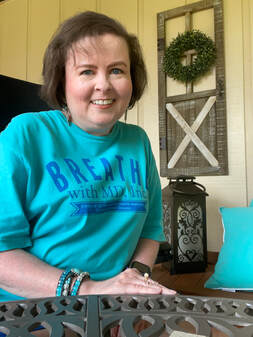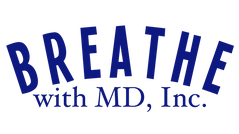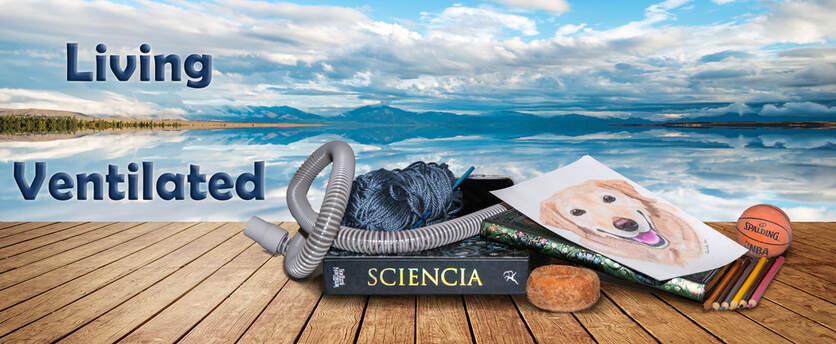Five Barriers to Starting Bi-level Mechanical Ventilation for Neuromuscular Breathing Weakness7/25/2023
By Andrea Klein Founder & President, Breathe with MD, Inc. It is vitally important to develop a working knowledge of breathing/respiratory muscle weakness and use that information to advocate (speak up) for appropriate care.  When an individual has a medical issue that can be managed, most of us assume it will be assessed and promptly managed. But that’s not always the case when the individual is living with a Neuromuscular Disease (NMD) and has respiratory involvement (breathing/respiratory and coughing muscle weakness). In this blog post, I’m covering five barriers to starting bi-level mechanical ventilation when the individual has an NMD and is experiencing underventilation during sleep. Delays in starting this method of moving air into and out of the lungs via BPAP, BiPAP, or portable ventilator for those with NMD can lead to an overall reduction in quality of life, respiratory infections, pneumonia, acute respiratory failure, and hospitalization. What are the barriers? 1. Lack of knowledge – If you don’t know what respiratory involvement is or that it’s possible in your form of NMD, you are unlikely to be familiar with symptoms or recognize that you need help breathing during sleep. Adults living with an NMD, increasingly those with late-onset and/or slowly progressive NMDs, are commonly uninformed about breathing and coughing muscle weakness and the options to manage these impairments. This lack of knowledge also occurs with parents of children and adolescents as well as adults who are newly diagnosed. No one should be ashamed of this as most have had many questions or were poorly informed at some point, myself included. It is vitally important to develop a working knowledge of breathing/respiratory muscle weakness and use that information to advocate (speak up) for appropriate care. The Breathe with MD, Inc. website is a good starting point for developing your own personal knowledge base to break down this barrier. 2. Denial – No one wants to admit that they have something wrong with a major life function like breathing. Symptoms are sometimes explained away as migraines, a need for more sleep due to the NMD disease process, anxiety, etc. Those who are highly successful in their career or with volunteer efforts and those who are busy with family are more likely to ignore the signs and symptoms they need help with their sleep breathing. All of our bodies have the amazing capacity to compensate for breathing muscle weakness, but we also have a threshold that once reached our bodies can no longer continue this compensation. That’s when a respiratory crisis occurs and that can prevent us from participating in decision-making. The Breathe with MD Support Group is an amazing way to navigate the denial barrier. A thorough, informed clinician who can answer questions and address your concerns can also successfully bring you through this barrier. 3. Fear – Few things are as alarming as having something wrong with your breathing. It is normal to be fearful of starting bi-level mechanical ventilation. Fear of allowing a machine to assist your breathing, fear of how that may feel, fear of a "new normal" all can keep you from moving forward in getting care and/or the necessary equipment. Communicating with peers who have experienced the same fears and have overcome them is comforting and can smooth the transition and adjustment phase for mechanical ventilation. Never underestimate the power of peer support to destroy fear and empower you! 4. Lack of access to appropriate care – When other barriers have been overcome, the next hurdle may be finding a clinician who has experience in evaluation and appropriate management of neuromuscular breathing/respiratory and cough weakness. Most clinicians list their expertise or special interest within their bio on the website of the medical institution or facility at which they practice. Sometimes, unknowingly, trusted and respected clinicians refer their patients to a clinician who is NOT experienced in neuromuscular breathing weakness. Unless the patient knows the common mistakes in the diagnosis and management of breathing/respiratory muscle weakness, they could be led to treatments that make them worse (i.e. CPAP and supplemental Oxygen alone, without mechanical ventilation) or make no improvement in their under ventilation. In some cases, clinicians wrongfully prescribe no intervention at all. For your awareness, “Based on CMS/National Institute for Health and Care Excellence guidelines, there are four objective criteria that can be used to guide the initiation of noninvasive ventilation: (1) forced vital capacity < 50% of predicted (upright or supine), (2) maximal inspiratory pressure # 60 cm H2O or sniff nasal pressure < 40 cm H2O (upright or supine), (3) PaCO2 > 45 mm Hg, and (4) overnight nocturnal desaturation < 88% for 5 min. If a patient meets any of these criteria, it is appropriate to initiate noninvasive ventilation.9,59“ Reference: Bernardo J. Selim, Lisa Wolfe, John M. Coleman, Naresh A. Dewan, Initiation of Noninvasive Ventilation for Sleep Related Hypoventilation Disorders: Advanced Modes and Devices, Chest, Volume 153, Issue 1, 2018, Pages 251-265, ISSN 0012-3692, https://doi.org/10.1016/j.chest.2017.06.036. The lack of access to physically reach a clinician with the needed experience is one of the most difficult barriers for someone with an NMD to overcome. Many areas within the United States (US) lack a clinician that understands the niche type of care that is needed for someone with neuromuscular breathing weakness. This could mean the individual might have to travel hours to reach a qualified clinician in their home state. Some drive or fly hundreds of miles for this multiple times a year. Not everyone with an NMD has the physical and/or financial means to travel outside of their immediate area, and they may have to settle for an inexperienced clinician with which they need to share information to get appropriate care. This does not come without challenges, because some cannot accept a patient having more knowledge than they do. This can result in the patient having to change clinicians multiple times until they find one that will partner with them to get appropriate care. Lack of physical access to appropriate NMD care overall is a global issue and tends to be worse in countries within Asia, Africa, and South America. Eliminating this barrier will not happen easily, but a starting point is for clinicians in these locations to be receptive to learning from rare disease patients who often are some of the most informed individuals experienced in gathering and sharing credible information such as peer-reviewed articles. The Breathe with MD, Inc. website can assist in this knowledge transfer as it includes downloadable PDFs and links to relevant medical articles. 5. Lack of access to mechanical ventilation devices – This barrier is less of a concern in the US where most are covered by private insurance, Medicare, and/or Medicaid. However, US medical insurance deductibles, co-pays, and non-capping monthly rentals can be too costly for individuals with NMD, leaving them to select less advanced, "rent-to-own" equipment that may not be best suited for their long-term needs. Programs for indigent individuals and financial hardship waivers exist and may reduce or eliminate the patient's mechanical ventilation cost. These programs may be operated by the respiratory care/Durable Medical Equipment (DME) provider or the respiratory equipment manufacturer. These are rarely if ever advertised, so the patient has to ask the DME if these options exist. It may be discouraging as one navigates through or around these barriers to access needed bi-level mechanical ventilation, but it is so worth it to experience improved quality of life and prolonged life with an NMD. What barriers did you experience along your journey to start bi-level mechanical ventilation? How did you overcome them? |
AboutLiving Ventilated celebrates those in the NMD community who use assisted ventilation. Archives
August 2024
Categories |
Breathe with MD, Inc. is a U.S. registered 501(c)(3) nonprofit organization. Donations are tax deductible to the extent allowable by law.
Note: This website should not be used as a substitute for medical care. For medical care or advice, please seek the care of a clinician who specializes in the breathing issues of those with Neuromuscular Disease (NMD).
Web Hosting by Hostgator
Note: This website should not be used as a substitute for medical care. For medical care or advice, please seek the care of a clinician who specializes in the breathing issues of those with Neuromuscular Disease (NMD).
Web Hosting by Hostgator


 RSS Feed
RSS Feed